17 Sets of Similar Words You’ve Been Using Incorrectly

In the English language, just because two words look similar doesn’t mean that they are. In fact, sometimes two seemingly similar words are actually complete and total opposites! To help you avoid sounding silly, we’ve rounded up some of the most commonly confused words and highlighted their differences. Time to accept the truth—no exceptions.
1
Accept and Except
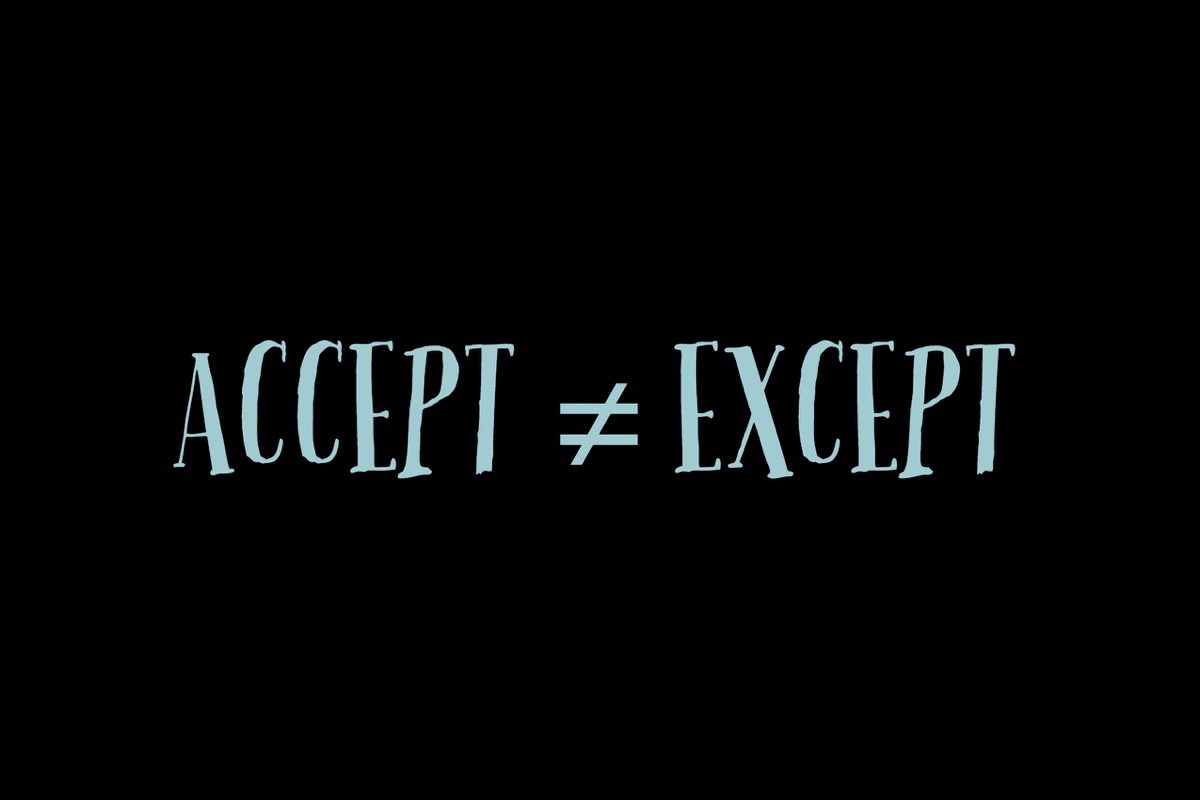
Some people just can’t seem to accept the fact that the words accept and except are not interchangeable. However, there are no exceptions to this rule: Accept is a verb meaning to believe or receive something, and except is a preposition used to refer to something being excluded.
2
Continuous and Continual
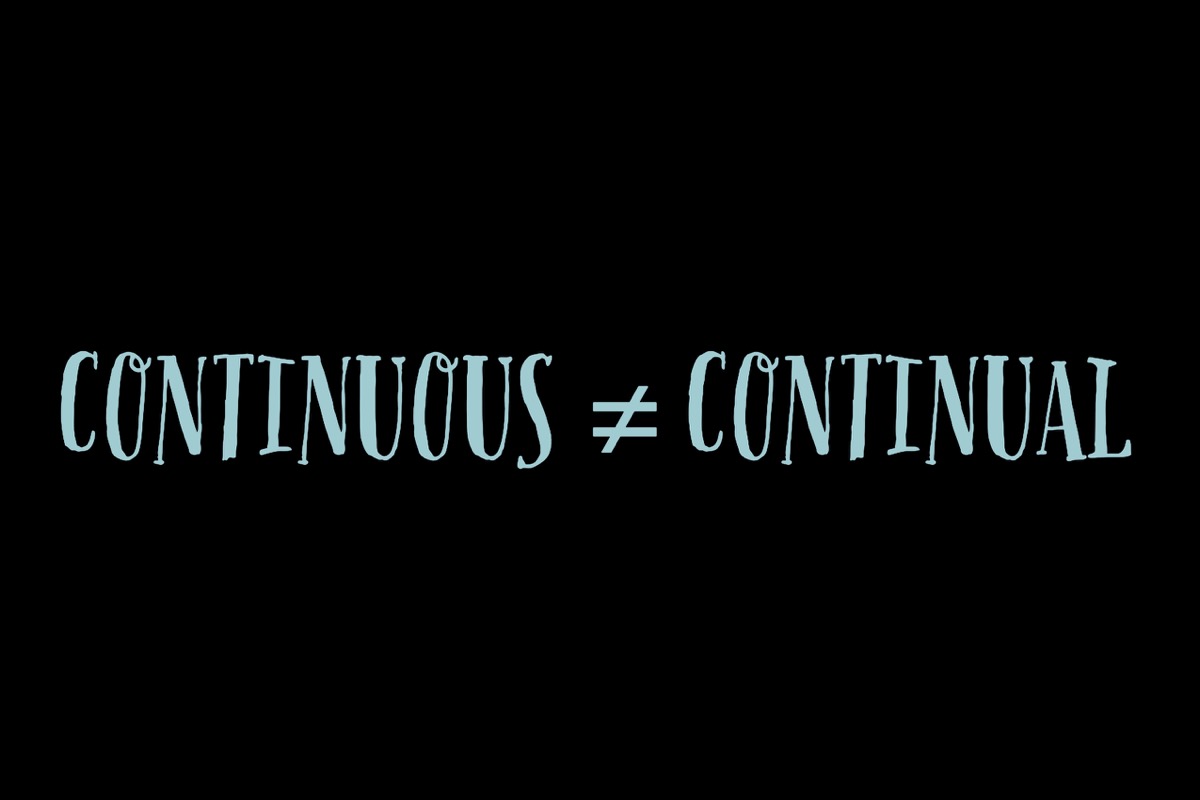
Though the words continuous and continual are similar, they are not synonyms. As Grammarist notes, things that happen without any interruption (like the flowing of a river) are continuous, while things that happen regularly with breaks in between (like bus departures) are continual.
3
Infamous and Famous
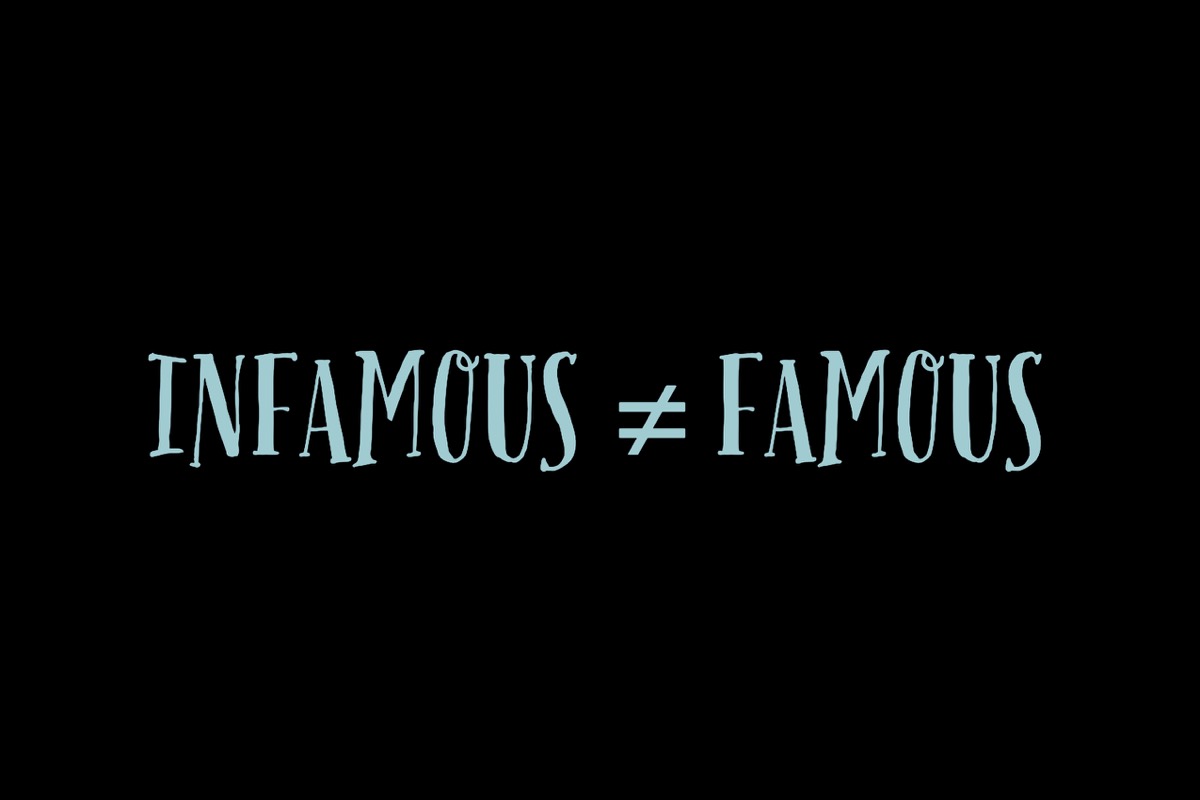
You really don’t want to mix up these commonly confused words. While famous means “widely known” with no positive or negative connotation, the adjective infamous is defined by Merriam-Webster as “having a reputation of the worst kind.” People who are infamous are usually also famous, but people who are famous aren’t necessarily infamous.
4
Adverse and Averse
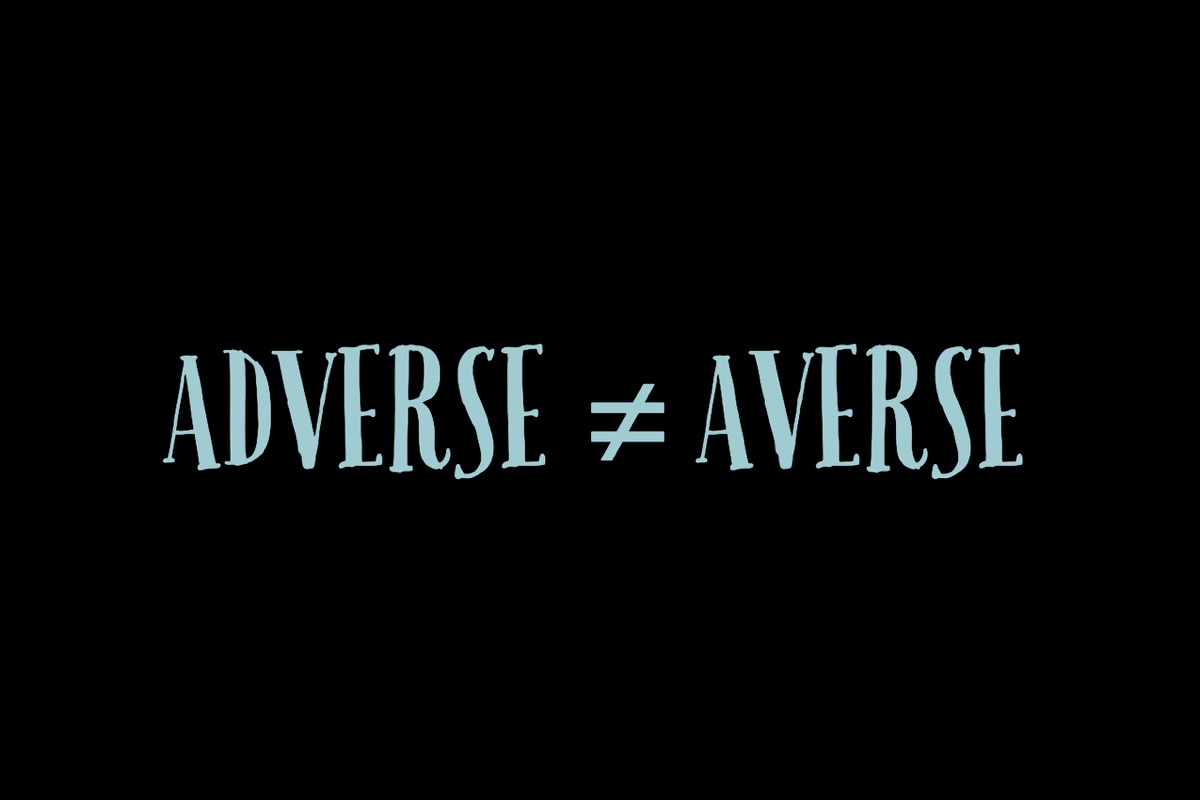
Don’t let these similarly sounding words confuse you. Adverse is an adjective synonymous with unfavorable and harmful. Averse, meanwhile, is an adjective used when someone strongly dislikes something. Remember: You can have an adverse reaction to a medication, but you are averse to taking it again.
5
Entitled and Titled
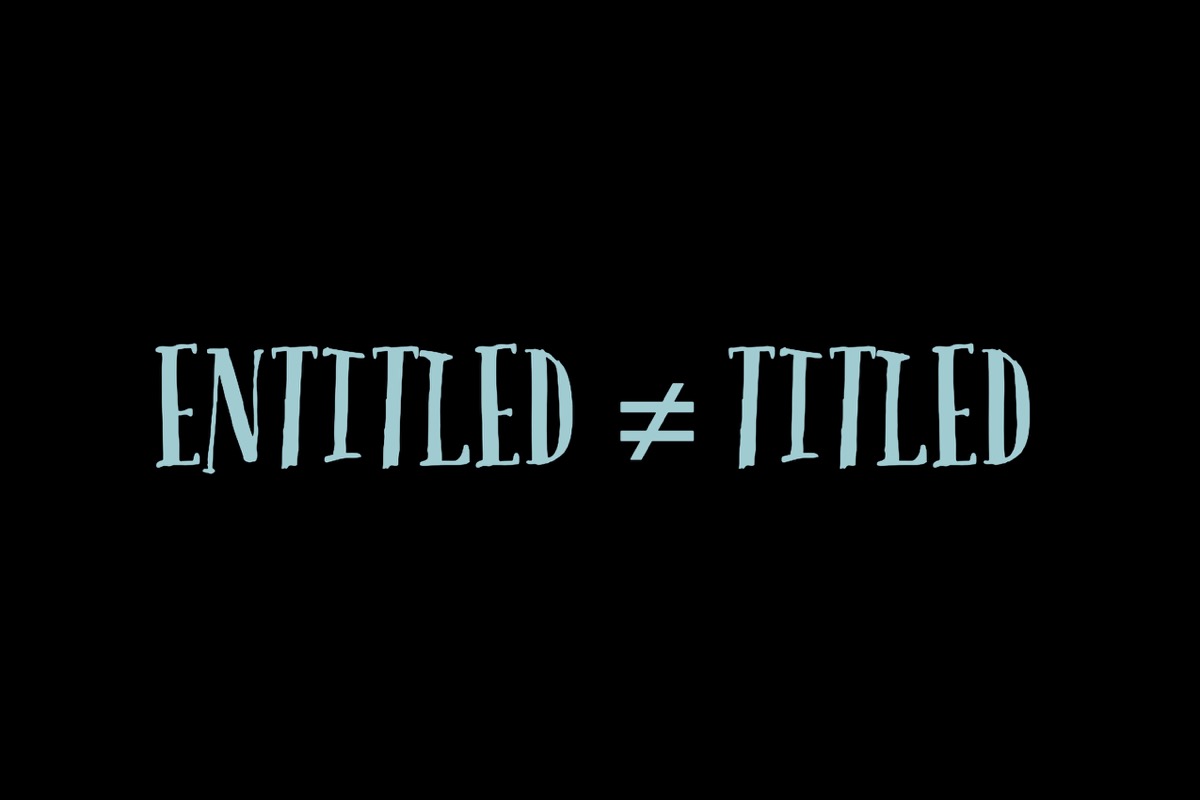
It doesn’t make much sense to say that a book, an article, or any other written work is “entitled” when referring to its name. Per Merriam-Webster, entitled is an adjective meaning “having a right to certain benefits or privileges” or “showing a feeling of entitlement.” Unless you’re trying to say that a piece of literature thinks it’s holier than thou, stick with titled.
6
Evoke and Invoke
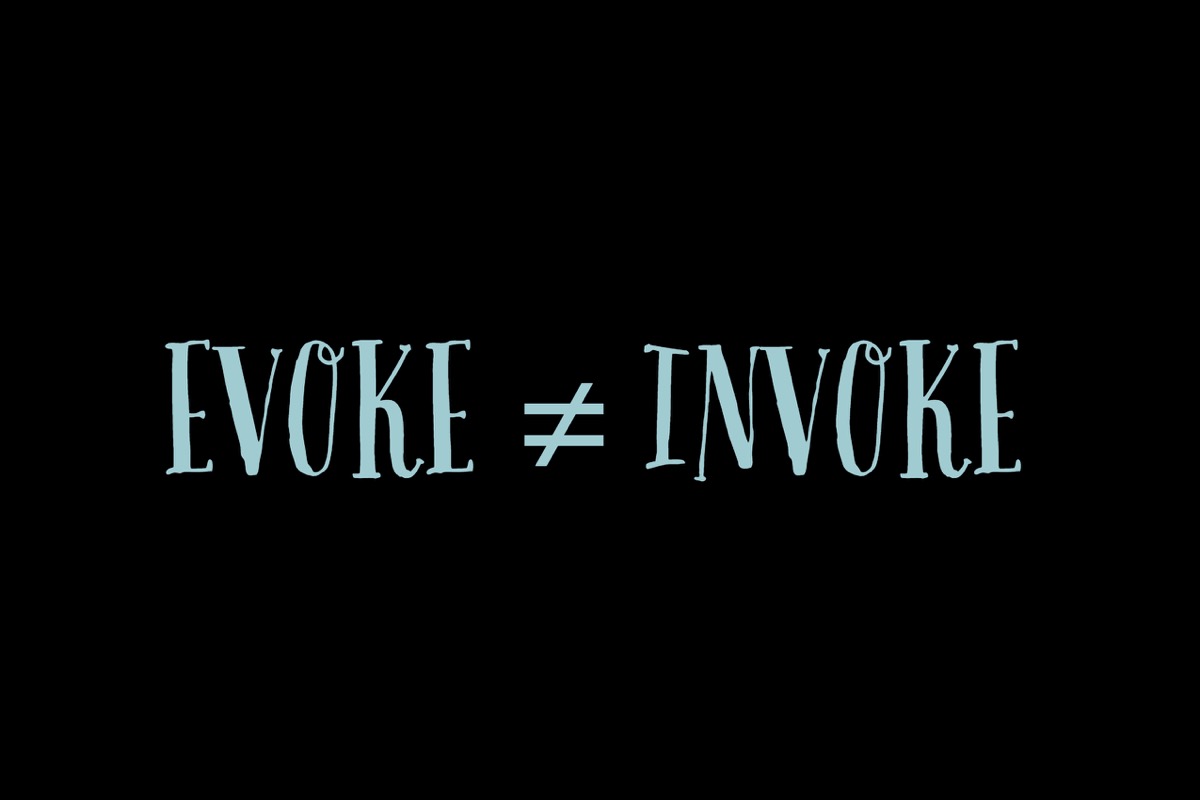
Evoke and invoke both come from the Latin word vocare for “call,” so it makes sense that they’re two of the most commonly confused words in the English language. However, these verbs are not interchangeable.
Evoke means “to call forth” and is typically used in reference to memories or emotions. Invoke, meanwhile, means “to call upon” and is most often heard in a court of law.
7
Insure and Ensure
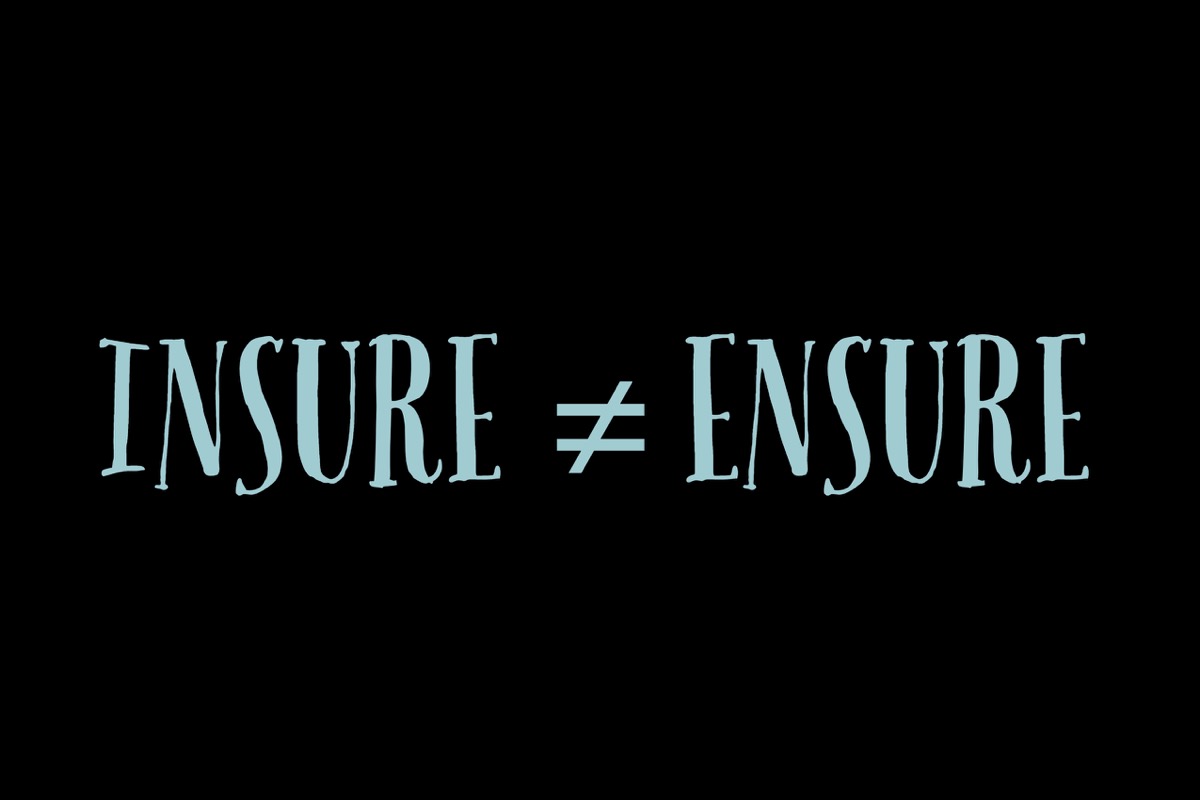
The problem with the words insure and ensure is that some experts do actually believe them to be synonyms. If you want to keep it simple, Merriam-Webster suggests limiting the use of insure to financial matters and only using ensure when you mean “to make sure, certain, or safe.”
8
Precede and Proceed
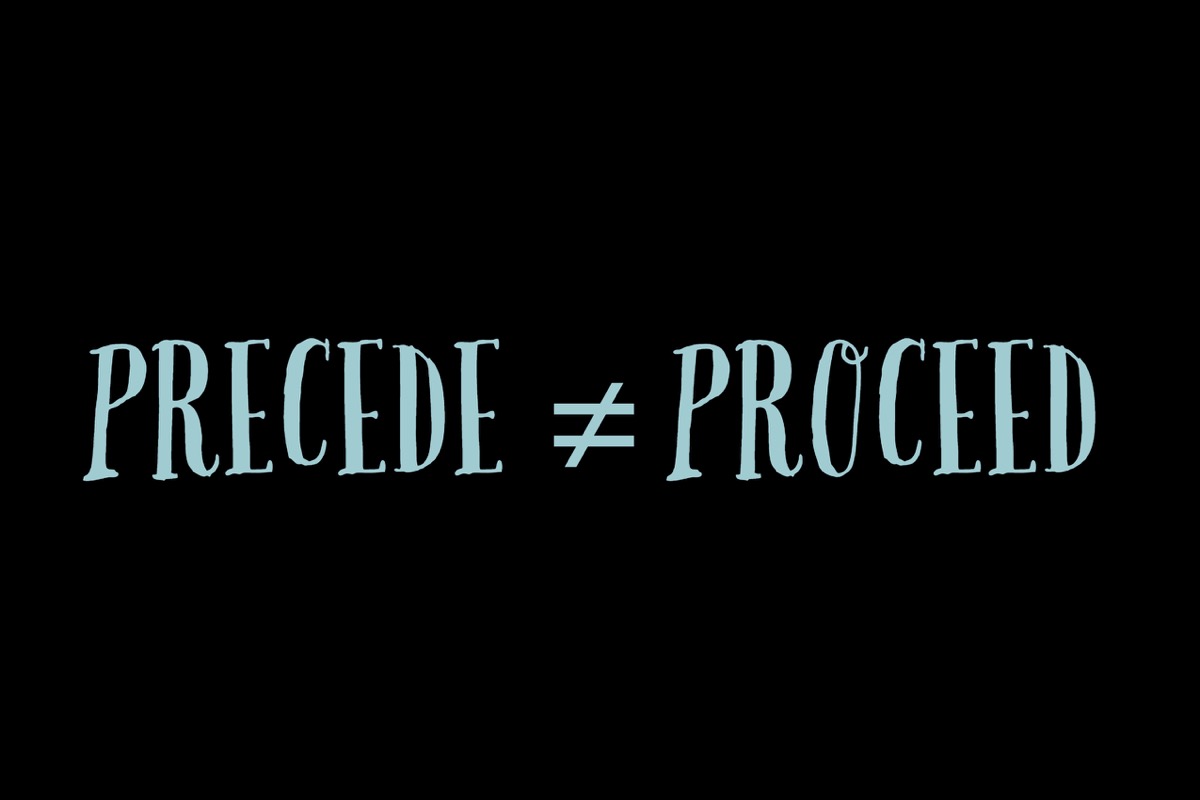
Precede and proceed might look similar, but their meanings could not be more different. While precede means “to go or come before”–as in: “dinner always precedes dessert”—proceed means “to carry on an action, process, or movement”—as in: “after dinner, we can proceed with dessert.”
9
Sympathy and Empathy
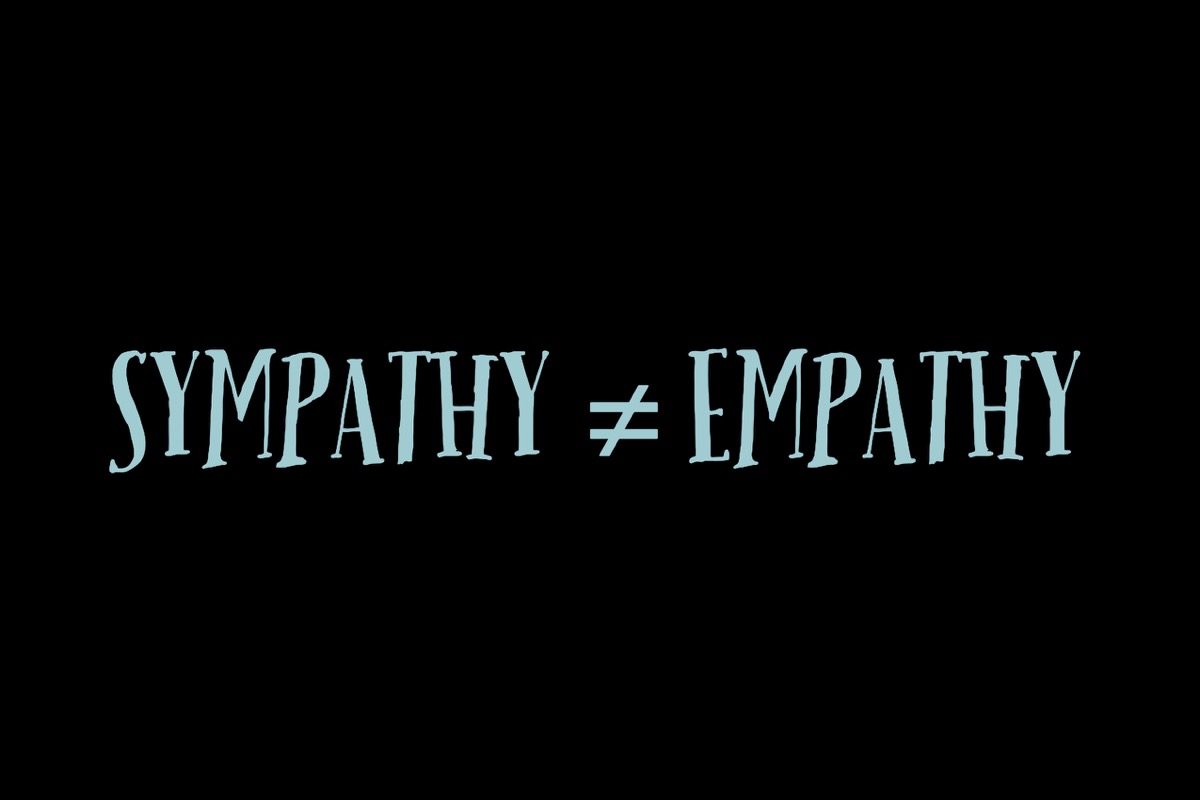
Having sympathy for someone and having empathy for someone are two different things. When you are sympathetic, you have personally experienced what someone else is going through and can relate to their struggle. When you are empathetic, you are sensitive to someone’s struggle, but you’ve never actually experienced something similar yourself.
10
Bemused and Amused
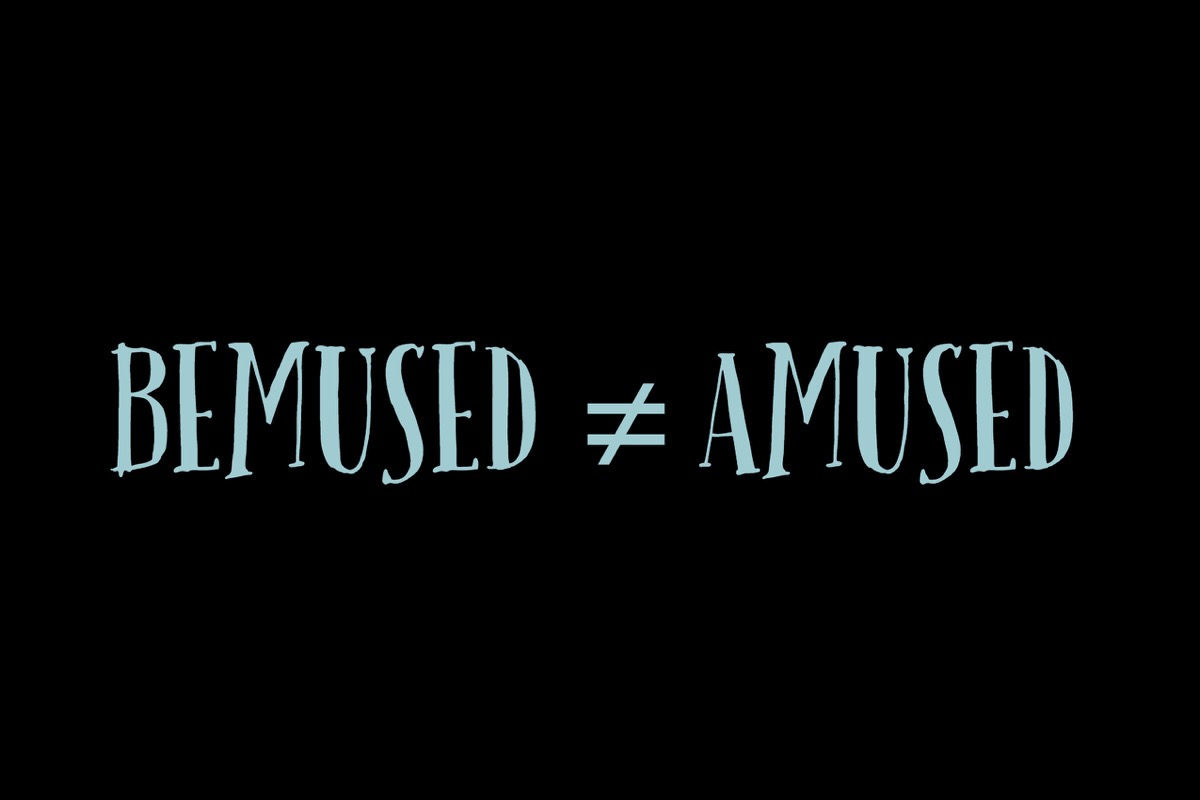
People who are amused are not usually also bemused. While amused is synonymous with entertained, bemused is synonymous with confused and befuddled.
11
Disinterested and Uninterested
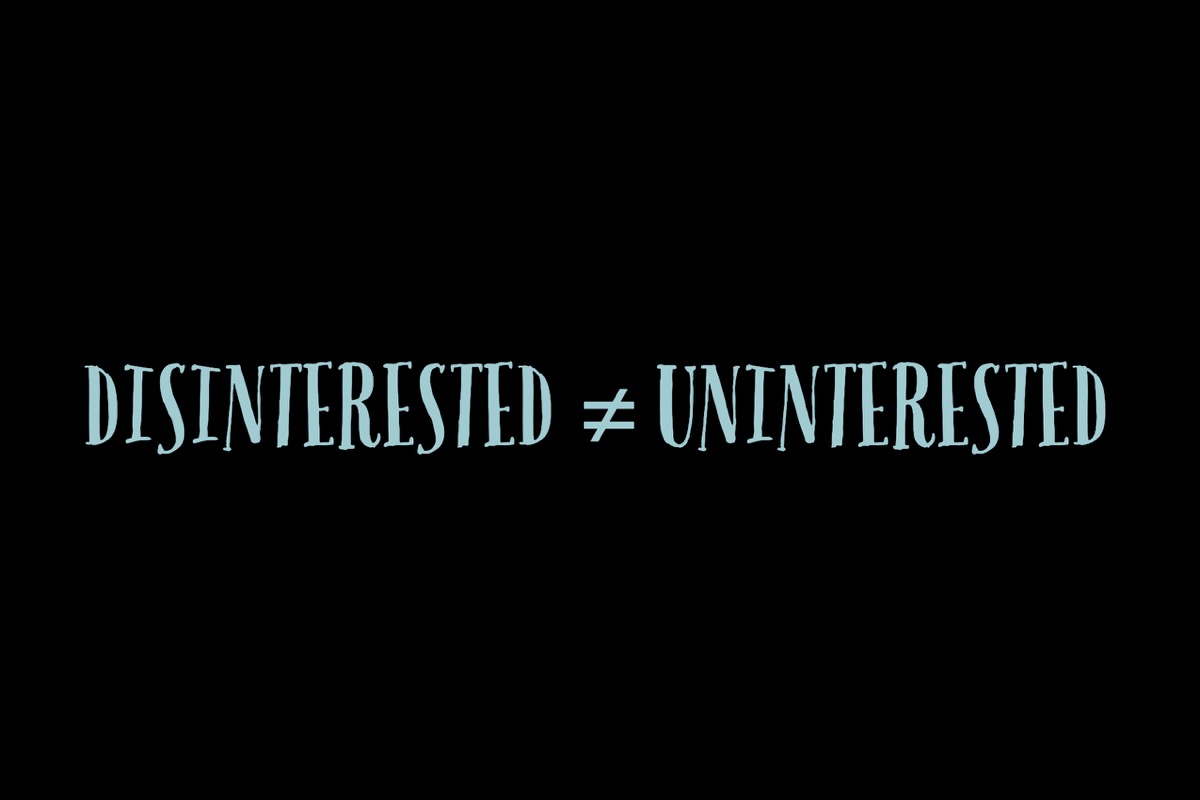
Disinterested and uninterested are very similar adjectives. However, these commonly confused words are not exactly the same. To be disinterested is to be unbiased. To be uninterested, meanwhile, is to simply not care.
Fun fact, though: According to Merriam-Webster, the meanings of these words used to be reversed. In other words, disinterested used to mean “not interested,” and uninterested used to mean “unbiased.”
12
Adapt and Adopt
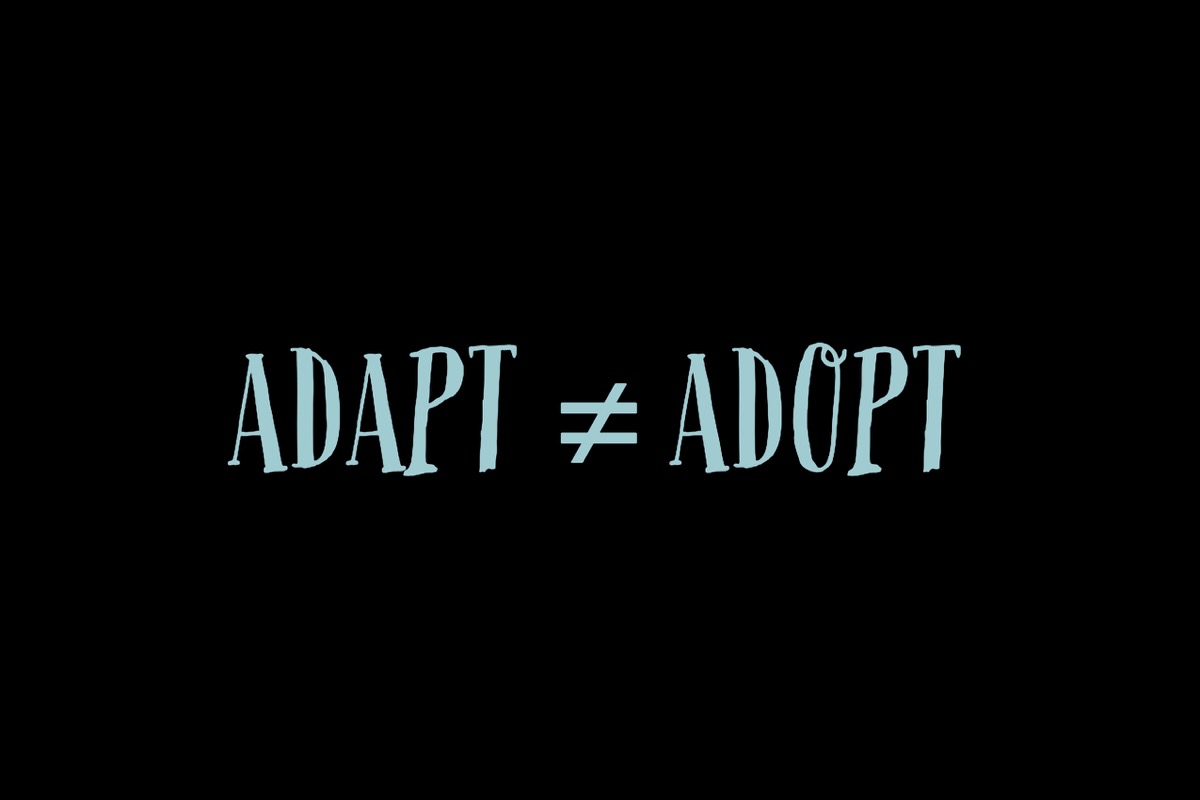
The words adapt and adopt are only similar in spelling and style, really. Otherwise, these two verbs could not be more different.
According to Merriam-Webster, adapt means “to make fit (as for a new use) often by modification.” Animals adapt to their environments. Adopt, meanwhile, means “to take up and practice or use.” Parents adopt a stern tone when their kids are being naughty.
13
Especially and Specially
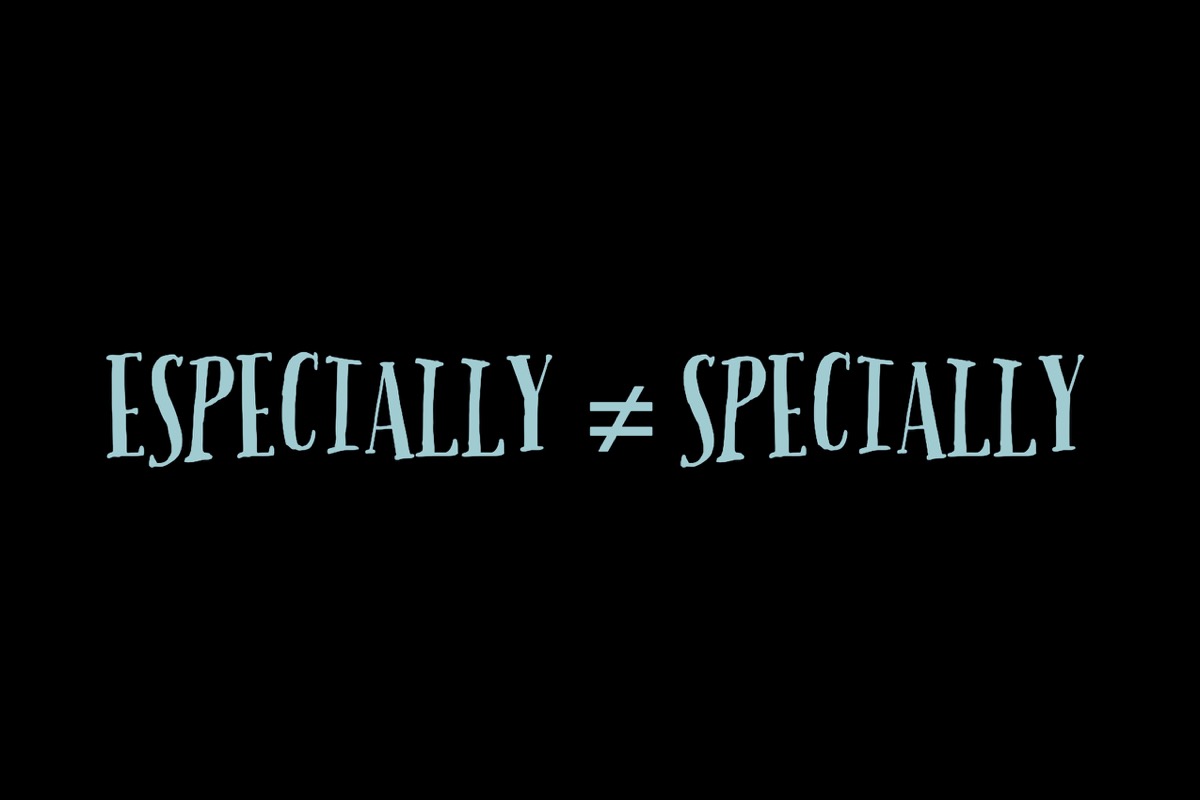
It’s easy to understand how adverbs especially and specially are commonly mistaken for each other. Not only do they look the same, but they also have very similar meanings. While especially means “in particular,” specially means “for a special purpose.”
Specially and especially can sometimes be used interchangeably—for instance, you can say you bought a snack both specially and especially for after work—but generally, they are not the same.
14
Farther and Further

The difference between farther and further might be subtle, but it’s important nonetheless. Though both words mean “more distant,” farther refers to physical distance, and further refers to figurative distance.
15
Allusion and Illusion
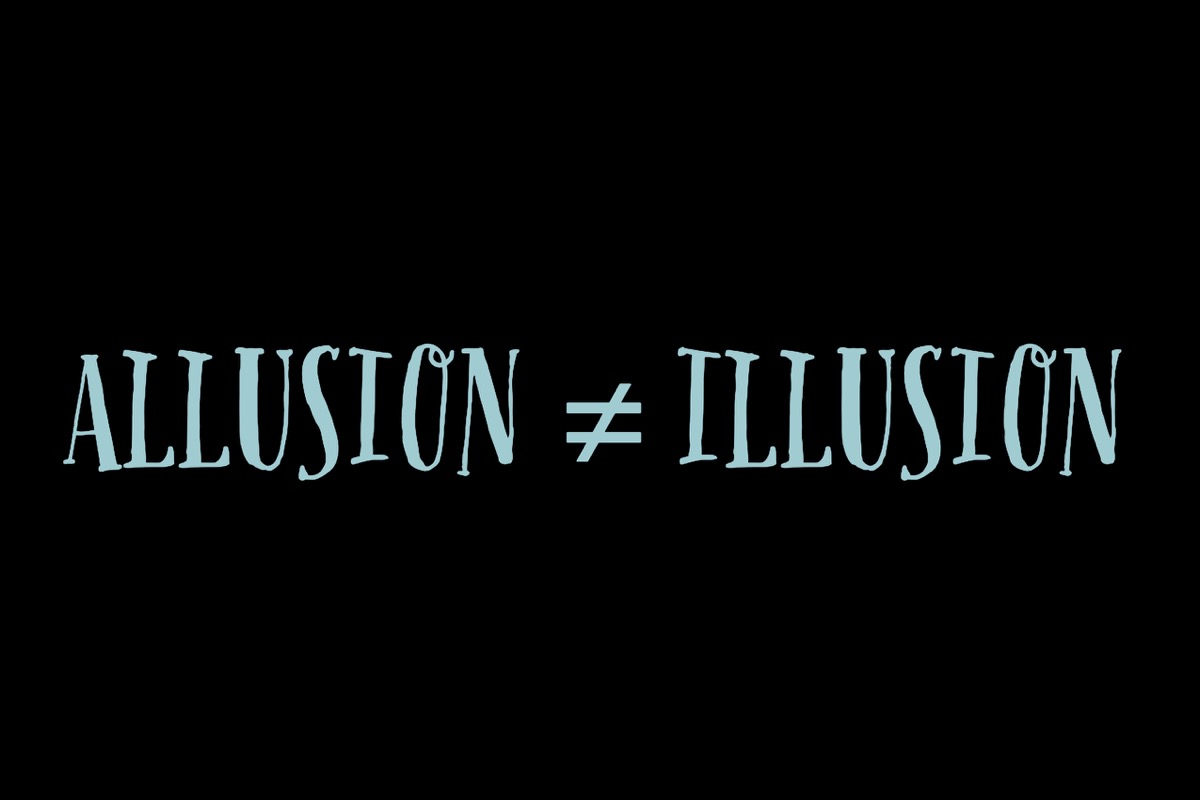
An allusion is a reference, most often one made in literature. An illusion, on the other hand, is a mirage or some other sort of deceptive appearance. These words might look the same, but they are not synonyms.
16
Amoral and Immoral
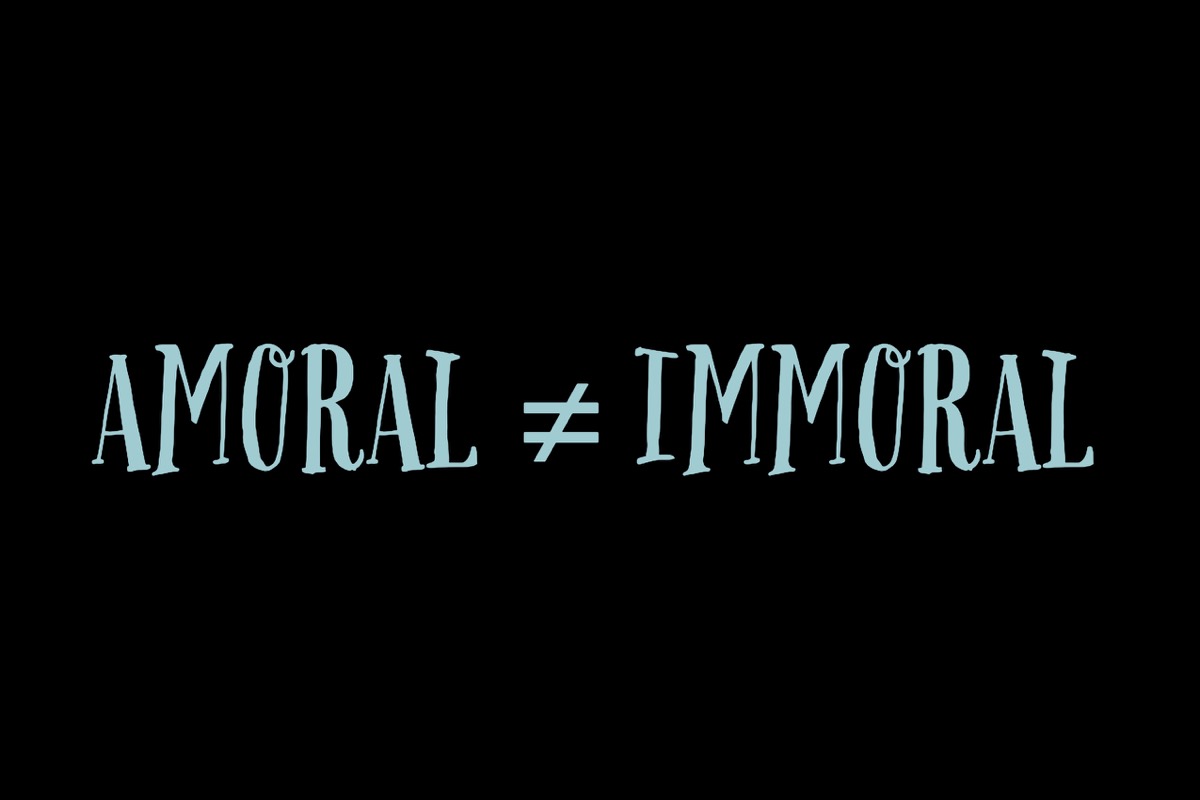
Something or someone that is amoral is neutral from a moral standpoint. Something or someone that is immoral, meanwhile, is not moral and knows that their behavior is wrong. If you ever get these words confused, just remember that an amoral person is apathetic and perhaps even unknowing, while an immoral person is unethical.
17
Emigrate and Immigrate

The difference between these two words is subtle but significant. When you emigrate, you leave one country to live in another. When you immigrate, you go to another country to live there permanently. So, if you are a resident of Germany moving to the United States, you are emigrating from Germany and immigrating to the United State.